Last Saturday, the expected Royal Decree was published in the Spanish official gazette (BOE). In a 172-page document with different changes to the regulations currently in force, the Aena privatisation and tariff freeze has been confirmed. At the same time, the Document for Airport Regulation – DORA – has been defined.
Several Spanish media inform about some of the changes specified in this Royal Decree. Above all, they deal with the tariff freeze and the fact that the Government will keep 51% of the company.
Javier Gándara about the new regulation
It is noteworthy the article by Javier Gándara—General Director for easyJet—in an op-ed piece at CincoDías. In his view, a private company should always be managed in a better way, but an airport is a natural monopoly and hence, economic regulation is essential to avoid abuses of power. Therefore, he is happy with some of the measures taken with this Royal Decree – i.e. tariff freeze until 2025 and limit to airports investments at 450 million Euros – but he misses some consultation with all parties to fix these regulations. In particular, he would have extended the Competition Commission competences even more.
Canary Islands to start legal strategies against the privatisation
We had already informed that some autonomous regions were not happy with the privatisation. Yesterday,eldiario.es informed that the Canary parliament agreed to go to courts if negotiations fail. Hence, the Government of the Canaries has been requested to start legal strategies “to avoid the Aena privatisation in the Islands and even to get the Canary airport management”.
Aena to be able to negotiate some “specialised services” with airlines
In other news, ElPaís informed that the new Royal Decree will entitle Aena to negotiate some “specialised services”. As soon as it is partially privatised, Aena will be able to negotiate with airlines the price of “voluntary specialised services or the use of specialised facilities” at the airports. The price of those services will be considered as “voluntary” and thus will not either be supervised or affected by the tariff freeze. Furthermore, Aena will be able to reach agreements with airline associations on the level of services correspondent to the airport charges in force. These levels would not go under certain fixed standards in any case.
Moreover, the Royal Decree takes into account the possibility of closing or selling an airport. However, that operation should guarantee the “sustainability of an airport net which general interest must be sufficient”.
Aena’s press release
For their part, Aena published a press release to announce some of those changes. Our translation follows below:
The Government approves a regulatory framework which guarantees the Spanish airport net
DORA establishes the airport fees will not increase, at least until 2025
Madrid, 4th July 2014 (Ministry of Development)
The Government’s board approved a new regulatory framework to guarantee the quality of service, to keep the Spanish airports as a net and to boost economic development and competition in the industry through the tariff freeze until 2025.
This regulatory framework is stable and has been adapted to the EU regulations. It becomes official through a Royal Decree performed by the Ministry of Development. Its object is to guarantee the citizen’s mobility as well as the social, economic and territorial cohesion, based on the general interest. It assures the economic sustainability as well as the provision of adequate basic services with sufficient quality standards.
The new framework, named Document for Airport Regulations (DORA), establishes the tariffs will not increase at least until 2025. This will have a very positive impact on the competition among airlines which use the Aena airports.
It is important to highlight that the tariff stability in the long term is possible thanks to the efficiency levels reached by Aena in the last three years. The capacity of the airport net and the modern infrastructures have been essential as well. This is the most significant effort performed by an airport management in the world.
Additionally, DORA guarantees the whole Aena airport net is kept as a whole. The net is made up of 46 airports and 2 heliports throughout Spain.
The regulatory and supervising framework is reinforced
In order to enable the entrance of investors, on 13th June the Government approved to privatise Aena S.A. up to a maximum of 49%.
In order to keep guaranteeing the general interest and to provide certainty to the private investors, it has been necessary to reinforce the regulatory and supervising framework.
The entrance of private money is not an isolated fact in Spain. This already happened in airport managements of other countries such as France, Germany, United Kingdom or Italy.
Adequate service quality
To sum up, DORA shall be the main regulatory and supervising tool of Aena S.A. It shall establish the specific guidelines for action.
This document shall have a five year long duration and shall be drawn by the Ministry of Development based on a proposal by Aena S.A and on the reports from the system supervisors. This document will have to be approved by the Government’s board. The minimum required conditions to guarantee accessibility, sufficiency and appropriateness shall be established in this document too, as well as the adequate quality of airport services.
DORA will have, among other statements:
- The information about the current situation and the airport net evolution.
- The traffic forecasts for each airport.
- The capacity and quality standards of the infrastructures implemented through indicators.
- The minimum infrastructure service conditions justified on the general interest.
- The five year plan for investments.
- The yearly operational and capital costs considering the efficiency criteria defined in the Royal Decree.
- The values of the maximum income per passenger for each year.
- The necessary parameters to fix the annual adjustments for the maximum regulated income (service quality and investment compliance).
- The costs of every basic airport service.
Photo: Aena’s electric cars at Madrid airport / Ministerio de Fomento


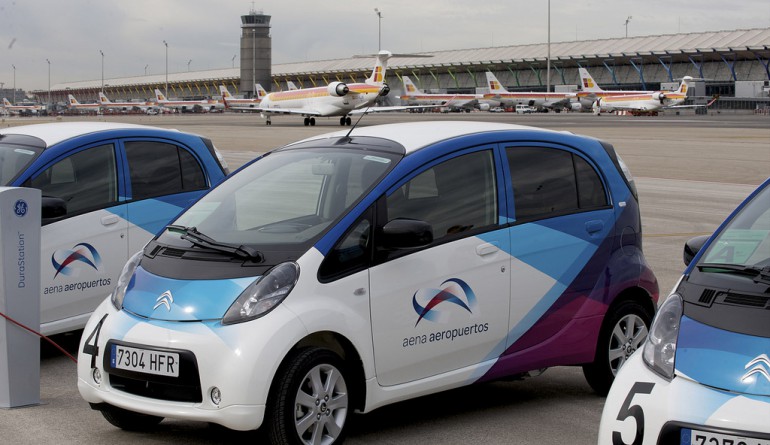
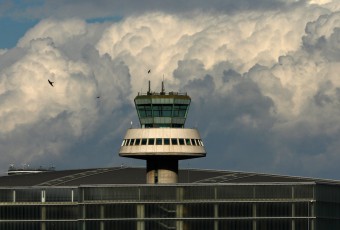
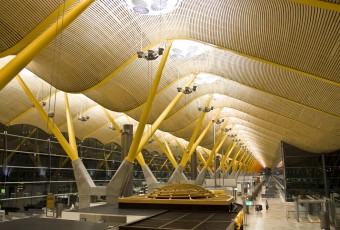

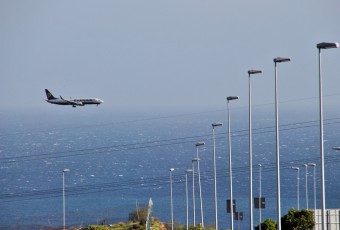
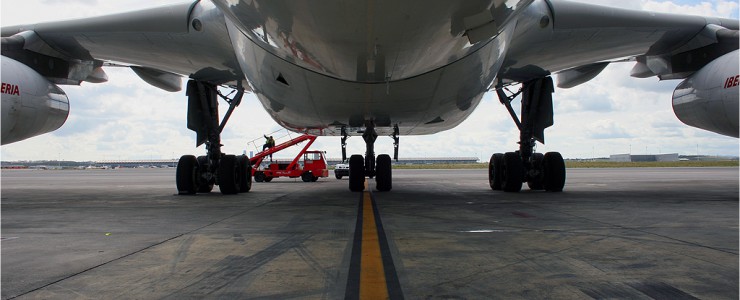
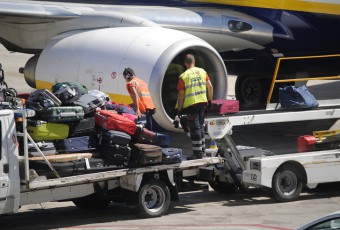
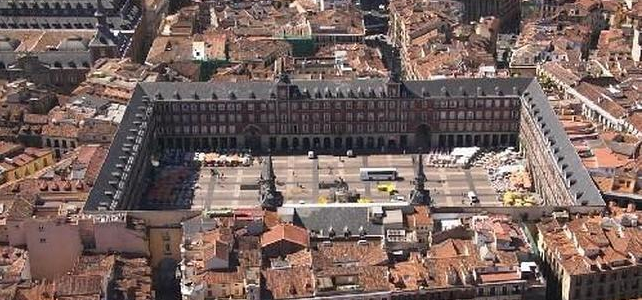
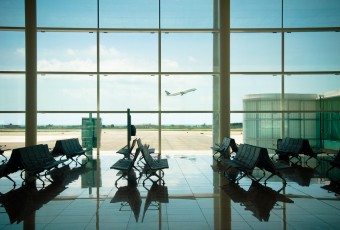
Pingback: The Tenerife city council demands a new terminal from Aena in Tenerife Sur - Flight Consulting